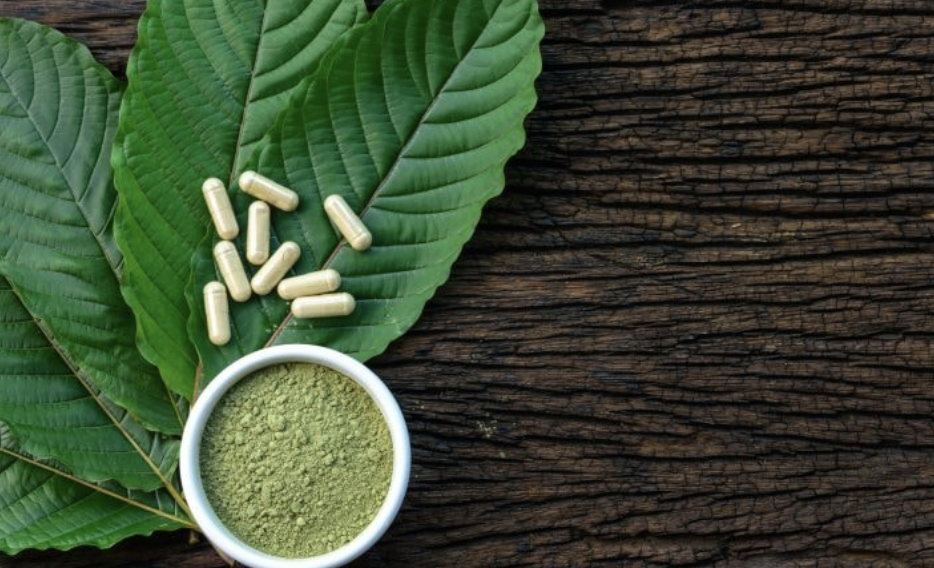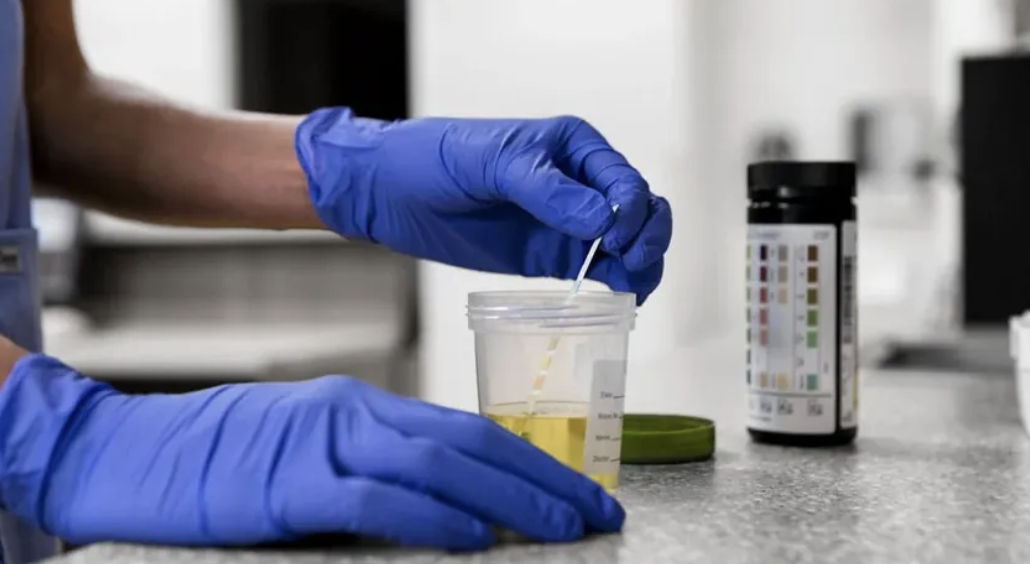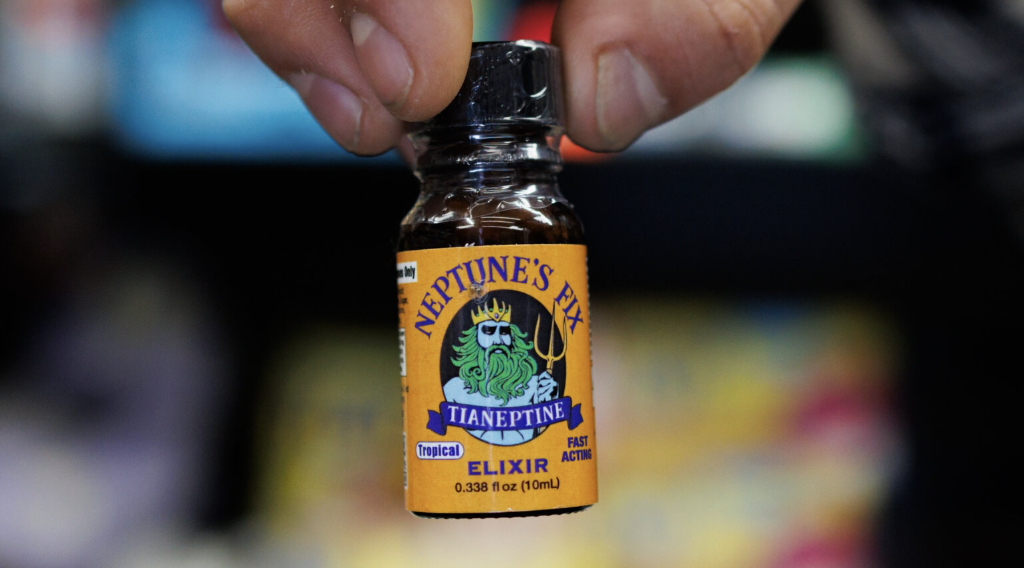Want to know the main differences between kratom and CBD? This article will explain kratom vs CBD key differences explained to help you decide. Kratom, from the Mitragyna speciosa tree, affects opioid receptors and can be either stimulating or sedative. CBD, from the Cannabis sativa plant, works through the endocannabinoid system without causing a high. Understanding these differences is crucial for making informed choices.
Key Takeaways
- Kratom and CBD originate from different plants and interact with the body through distinct mechanisms; kratom acts on opioid receptors while CBD modulates the endocannabinoid system.
- Kratom is associated with rapid pain relief but carries risks of dependency and severe health issues, whereas CBD is generally safer with anti-inflammatory properties and fewer side effects.
- The legal status of kratom varies by state, while CBD derived from hemp is federally legal; both substances require careful consideration of intended uses and associated risks.
What is the difference between kratom and CBD?
Kratom and CBD are both natural substances, but they originate from entirely different plants and interact with the body in distinct ways. Kratom, derived from the Mitragyna speciosa tree, primarily interacts with the opioid receptors, offering both stimulating and sedative effects depending on the dosage. CBD, on the other hand, is a compound found in the Cannabis sativa plant and works mainly through the endocannabinoid system, modulating various physiological processes without causing a high. Additionally, the combination of cbd and kratom is gaining attention for its potential benefits.
The table below provides a side-by-side comparison of these two compounds:
How do kratom and CBD work in the body?
Kratom and CBD exhibit their effects through different pharmacological mechanisms. Kratom primarily acts on the mu-opioid receptors, influencing pain relief and mood, while CBD interacts with the body’s endocannabinoid system, affecting pain, mood, and inflammation.
The following subsections will delve deeper into these mechanisms.
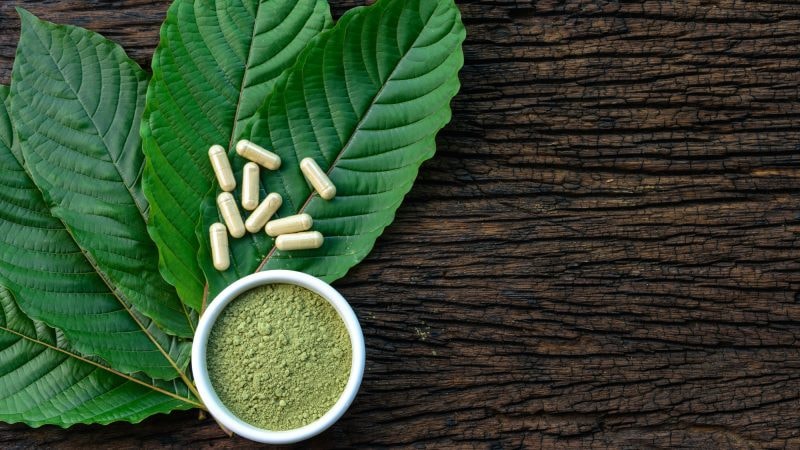
Kratom: How it affects the brain and body
Kratom’s effects are dose-dependent; low doses produce stimulating effects, while higher doses offer sedative and analgesic benefits. The active compounds, mitragynine and 7-hydroxymitragynine, bind to opioid receptors in the brain, mimicking the effects of opioids.
This interaction is why kratom can be effective for pain relief but also why it carries a risk of tolerance and kratom addiction.
CBD: How it affects the brain and body
CBD primarily influences the body’s endocannabinoid system, which helps regulate pain, mood, and immune response. Unlike THC, CBD does not produce psychoactive effects. It interacts with CB1 and CB2 receptors, as well as serotonin receptors, offering anti-inflammatory and anxiolytic benefits without euphoria.
Research has shown that CBD can reduce neuron death and support overall brain health.
What are the key benefits of kratom vs. CBD?
Kratom and CBD offer a range of benefits, making them popular choices for various health concerns. Kratom is often lauded for its rapid pain-relieving properties, making it a go-to for acute pain management. Users also report that kratom can help alleviate opioid withdrawal symptoms, providing a natural alternative for those managing opioid addiction and struggling with dependency.
CBD, on the other hand, shines in managing chronic pain and can help relieve chronic pain, thanks to its anti-inflammatory properties. It’s also widely recognized as a natural pain reliever for reducing anxiety and improving sleep quality, which can help reduce stress. CBD’s ability to modulate the endocannabinoid system without causing a high makes it a versatile and safer option to manage chronic pain for long-term use.
Scenarios where CBD could be beneficial include chronic pain conditions, anxiety disorders, and sleep disturbances, as well as offering therapeutic benefits.
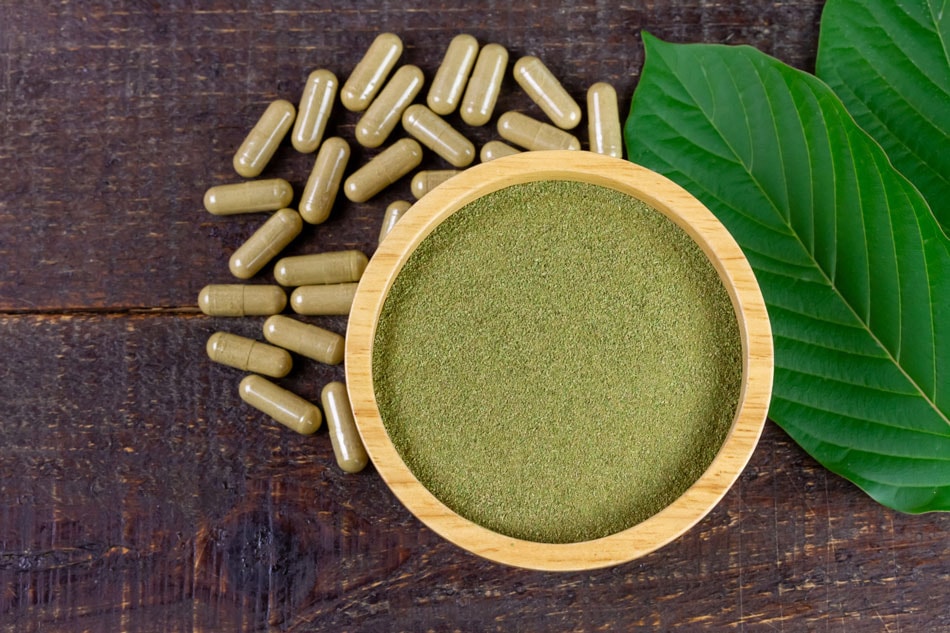
Are there risks or side effects to using kratom or CBD?
While both kratom and CBD offer potential benefits, they also come with their own sets of risks and side effects. Understanding these risks is crucial for making an informed decision. Kratom can lead to dependency, withdrawal symptoms, and severe health issues like liver damage and seizures.
CBD is generally considered safer, but it can still cause mild CBD side effects such as drowsiness, changes in appetite, and interactions with other medications. The following subsections will explore these risks in more detail.
Kratom side effects and risks
Kratom use can result in a range of side effects, including nausea, constipation, and high blood pressure. More severe risks include liver toxicity, liver damage, seizures, and dependence. The FDA has issued warnings about kratom’s potential harm and lack of safety evidence.
Reports have also highlighted that taking kratom products can be contaminated with harmful substances like heavy metals and pathogens.
CBD side effects and risks
CBD is generally well-tolerated, but it can cause side effects such as dry mouth, drowsiness, and gastrointestinal issues. It can also interact with other medications, particularly blood thinners, potentially altering their effectiveness.
The purity and dosage of a cbd product in cbd products can vary, with some products containing less CBD than stated or even traces of THC, raising concerns about unintentional psychoactive effects; the effects vary.

Is kratom or CBD legal in the U.S.?
The legal status of kratom and CBD in the U.S. varies significantly:
- Kratom is not federally regulated.
- Its legality depends on state laws.
- Some states have banned kratom.
- Other states have pending legislation regarding kratom.
CBD derived from the hemp plant (containing less than 0.3% THC) is federally legal, but its legality can still vary by state. It’s essential to check local regulations before purchasing or using either substance.
Which one is better for pain, anxiety, or sleep?
Choosing between kratom and CBD depends on the specific condition you’re looking to address. Kratom may offer rapid relief for acute pain but comes with higher risks, while CBD is better supported for managing chronic pain, anxiety, and sleep issues.
The following subsections will provide more detailed comparisons for these specific conditions.
Kratom vs. CBD for pain
Kratom is often viewed as more effective for acute pain relief due to its opioid-like effects, which work quickly to alleviate pain. However, this also means it can lead to tolerance and dependency.
CBD, on the other hand, offers anti-inflammatory support that can be beneficial for managing chronic pain without the risk of dependency. Its interaction with the endocannabinoid system helps modulate pain signaling effectively, and cbd isolate can enhance these effects.
Kratom vs. CBD for anxiety and mood
CBD has well-documented anxiolytic properties, making it a reliable option to reduce anxiety and improve mood. Kratom users report mood enhancement, but this comes with the risk of withdrawal and rebound anxiety, particularly due to its status as a primary psychoactive compound.
While kratom may provide short-term relief, CBD is a safer and more sustainable option for long-term anxiety management.
Kratom vs. CBD for sleep
CBD is known to improve sleep quality by reducing anxiety and pain, promoting a more restful sleep. Kratom can induce sedation at higher doses, but its long-term impact on sleep cycles is less favorable, often leading to disrupted sleep patterns.
For those struggling with insomnia, CBD offers a more reliable solution.
How do product forms and dosages compare?
Kratom and CBD are available in various forms, including kratom powders:
- Powders
- Capsules
- Tinctures
- Edibles
- Vapes
Kratom dosage varies by strain and user weight; starting with a low dose is recommended to avoid adverse effects. CBD dosages are more standardized, often listed on product labels.
Capsules and tinctures offer precise dosing, while edibles and vapes provide alternative methods of consumption. Careful dosing, especially in high doses, is crucial for kratom to prevent potential risks.
Can kratom and CBD be used together?
Combining kratom and CBD is a topic of interest but also caution. Studies indicate that CBD can increase the exposure of kratom’s primary alkaloid, mitragynine, by 2.8 times. This could potentially enhance the effects of kratom but also increase the risk of side effects.
While some users report positive outcomes from combining the two, the lack of extensive research means it’s essential to proceed with caution to avoid potential polysubstance abuse.
How to choose between kratom and CBD
Choosing between kratom and CBD depends on various factors, including the condition you’re addressing, your risk tolerance, and legal considerations. For acute pain relief, kratom might be more effective, but it comes with higher risks.
CBD is better suited for chronic conditions like anxiety, sleep issues, and chronic pain. It’s advisable to consult with a healthcare professional to make an informed decision, especially if you have a history of substance use or are at risk of addiction.
Bottom Line: Kratom vs. CBD
Kratom and CBD offer unique benefits and risks. Kratom is effective for acute pain relief but comes with significant risks, including dependency and severe side effects. CBD, on the other hand, is a safer, more versatile option, especially for managing chronic pain, anxiety, and sleep disturbances. The legal landscape also varies significantly, with CBD being more widely accepted. Ultimately, the choice between kratom and CBD should be made with careful consideration of your specific needs and a consultation with a healthcare professional. Making an informed decision will empower you to optimize your wellness journey.
FAQs about Kratom vs. CBD
Is kratom addictive?
Kratom can indeed be addictive, as it affects opioid receptors and may result in dependency and withdrawal symptoms similar to those associated with opioid addiction. It is important to exercise caution with its use.
Can CBD cause a high?
CBD does not cause a high, as it is non-psychoactive and does not alter perception or mood, unlike THC. Therefore, you can use CBD without experiencing the intoxicating effects commonly associated with cannabis.
Which is safer: kratom or CBD?
CBD is considered safer than kratom because it has a lower risk profile and is backed by extensive research, whereas kratom poses a higher risk of adverse effects and dependency.
Is it legal to travel with kratom or CBD?
It is legal to travel with CBD domestically if it contains less than 0.3% THC; however, the legality of kratom varies by state and local jurisdiction, necessitating a review of regulations at your destination.
Can I fail a drug test from kratom or CBD?
Kratom can potentially cause false positives for opioids on drug tests, while CBD usually does not lead to a failure unless it contains THC, which may result in a positive test for marijuana.


